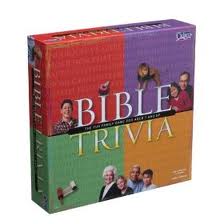Abstract
Bible questions should be redirected to Biblical Hermeneutics unless they are doctrine questions in disguise. Those should be couched in terms of the doctrine they are addressing, not in terms of the Bible directly. Unless the question is literally asking for a trivial search of the Bible, in which case the question needs to be closed.
The Bible doesn't really define Christianity
As a participant on the Hermeneutics site, I come from a slightly different place than most Christians. The fact is, the Bible plays a prominent role in many theologies and none can claim a monopoly on being rooted in the Scripture. This isn't exactly the place to argue that assertion, but consider the difference between the Sadducees and the Pharisees who certainly knew the Torah better than any of us know the Bible. And yet, they disagreed about fundamental theological issues (including whether there was life after death) and were both utterly wrong (from the Christian perspective). Proving that something is or is not in the Bible doesn't help us understand Christianity as much as we might think.
From the earliest moments of the church, people have been misusing the Bible to prove things that are false:
And count the patience of our Lord as salvation, just as our beloved brother Paul also wrote to you according to the wisdom given him, as he does in all his letters when he speaks in them of these matters. There are some things in them that are hard to understand, which the ignorant and unstable twist to their own destruction, as they do the other Scriptures.—2nd Peter 3:15-16 (ESV)
If you want to understand the Bible, go to the people who know the Bible
Obviously, I think the crowd over at the site dedicated to understanding the Bible has some useful things to say about it. However, I'm thinking first of your pastor/priest/mentor. You could make their week by pulling out a Bible and asking them your question instead of us. Presumably, you'll get a more trustworthy answer than just approaching random people on the internet. If you insist on asking random people on the internet, why not go to the site dedicated to answering those types of questions?
I used to think there was some utility in asking Bible questions here if you wanted to know the Christian interpretation. But then I started reading questions and answers tagged bible and biblical-basis. I find far more diversity in answers than I expected. And, laying the cards on the table, I find that many of the answers are lined up against millenia of scholarship of the Scripture. Since many of these answers don't cite sources, I gotta assume they are personal interpretations. The exceptions are usually: a) Catholic answers or b) from people I recognize on the Biblical Hermeneutics site.
Consider for a moment, Peter's advice on the topic:
You therefore, beloved, knowing this beforehand, take care that you are not carried away with the error of lawless people and lose your own stability. But grow in the grace and knowledge of our Lord and Savior Jesus Christ. To him be the glory both now and to the day of eternity. Amen.—2nd Peter 3:17-18 (ESV)
Let's focus on what we know
If we are all trying to grow in the grace and knowledge of Christ and His Church, let's focus on that instead of Bible trivia. I'm currently teaching a series in Sunday School on the minor heroes of the faith found at the end of Hebrews 11: Rahab, Gideon, Barak, Samson, and Jephthah. There's a lot of fun stuff in these stories, but we aren't studying them so that we can pass a test to get through the pearly gates.

We learn these old stories in order to understand ourselves, our faith, and our relationship to God. The history of Christianity is the history of people struggling with their faith. Often that struggle revolves around Biblical texts, but the context is always doctrine. Let's ask about the doctrine and not directly about the Bible so that we are swinging in our strike zone.
Conclusion
We are very close to graduation and while maintaining traffic will continue to be important, maintaining quality as more and more of the general public find us will be more important. When looking at our self-evaluations, I'm struck by how our best questions are the ones asking about specific doctrines within specific traditions. Broad questions about the Bible don't turn out well on Christianity.SE, in my opinion. Let's ask the questions that we are equipped to answer.

